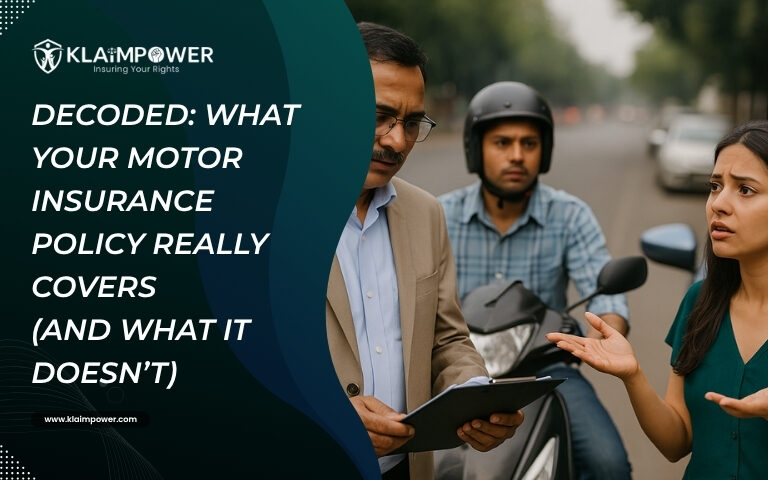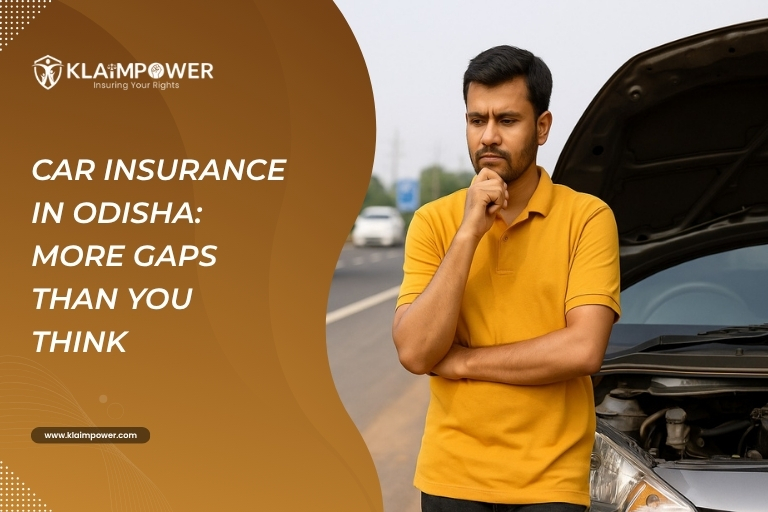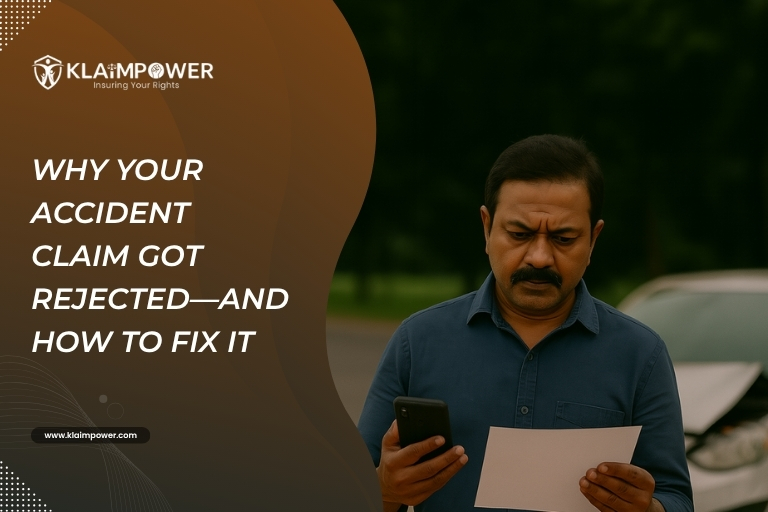Introduction: The Real Truth About Motor Insurance
This blog breaks down the Motor Insurance Coverage in Odisha, separating fact from assumption with real-life cases. In India, and especially in states like Odisha, motor insurance is not just a regulatory necessity—it’s a lifeline during crises. Whether you’re a daily commuter in Bhubaneswar or a long-distance driver in Koraput, knowing what your insurance policy actually covers can be the difference between a smooth claim and a devastating financial shock. Yet, many vehicle owners assume that a “comprehensive policy” means full protection. The reality? Insurance is filled with jargon, hidden exclusions, and conditions that often go unnoticed until it’s too late. This blog serves as a straightforward, Odisha-focused guide to understanding what is really covered under your motor insurance—and what isn’t. From real-life stories to practical add-on tips, we’ll help you decode your policy with confidence.
When Comprehensive Coverage Becomes a Complicated Trap
When Manoj, a school teacher from Bhubaneswar, had his new Maruti Baleno swept into a waterlogged underpass during Cyclone , he was confident his insurance would cover everything. But when his claim got rejected due to “consequential engine damage,” he was left confused and financially stranded. What went wrong? Like many vehicle owners in Odisha, Manoj had bought a “comprehensive policy” assuming it covered everything. It didn’t.
At KlaimPower, we meet dozens of people like Manoj every month—car and bike owners who trusted their policy, only to find out the fine print had other plans. This blog unpacks what your motor insurance policy really covers and, more importantly, what it doesn’t. With real cases from across Odisha and simple language, we’ll help you understand how to protect your vehicle smarter.
What Your Policy Actually Covers
Every motor insurance policy in India includes two core components:
- Third-Party Liability Insurance (Compulsory by Law)
- Covers injury/death of a third party
- Covers damage to third-party property (up to ₹7.5 lakh)
- Own Damage (Comprehensive Cover)
- Covers accidental damage to your own vehicle
- Theft, fire, riots, vandalism
- Natural disasters like floods and cyclones (important in Odisha)
- Personal Accident Cover for the owner-driver
Third-Party Insurance: Where Your Insurer Can Still Deny Coverage
Third-party (TP) insurance is mandatory in India, but even if you hold a valid TP policy, your insurer can legally reject a claim. Situations include:
- Expired or inactive policy at the time of the accident
- Driver under the influence of alcohol or narcotics
- No valid driving license or misuse of vehicle for commercial use
- Driving with an expired fitness certificate
- Policy bought but premium not cleared or cheque bounced
In all such cases, even though third-party insurance is designed to protect others, the insurer may deny the claim, or pay and recover it from you later. This principle of subrogation is recognized under Indian insurance law. As outlined by industry experts in Economic Times, the denial of third-party claims is subject to procedural violations and non-compliance with legal formalities.
The applicable provisions under the Motor Vehicles Act, 1988 provide the foundation for such claim approvals and denials. For disputes regarding liability, Legal Service India explains how MACT tribunals assess evidence and circumstances. Moreover, the IRDAI guidelines and tools from platforms like PolicyBazaar have made navigating these complexities more accessible for consumers.
Uncovering the Real Reason Behind Theft Claim Rejections: Ganjam Example
Radhika from Ganjam had her Honda Activa stolen outside her coaching center. Her policy had theft coverage. Still, her claim was rejected due to “delay in FIR and intimation.” She didn’t know that not reporting theft within 48 hours often leads to automatic claim denial. This is a classic case where lack of awareness costs victims more than the incident itself.
We helped Radhika file a written appeal, attach supporting documents, and reopen her case under grievance redressal.
How We Helped a Truck Driver from Balasore Save ₹60,000
Sanjay, a tempo driver from Balasore, was involved in a collision on NH-16. His insurer refused to pay for the damaged cargo or roadside repair, claiming the policy didn’t cover it. Sanjay reached out to us via WhatsApp. We reviewed his policy, explained that cargo damage required a separate “goods in transit” cover, and helped him reframe his claim focusing only on vehicle damage.
The result? He received ₹60,000 in compensation—proof that informed navigation of clauses matters.
Add-On Covers That Actually Make Sense in Odisha
| Add-On Cover | Why It’s Worth It in Odisha |
|---|---|
| Zero Depreciation | Full cost of repairs without deduction |
| Engine Protection | Essential during monsoons, flooding risk |
| Invoice Protection | Get full invoice value in case of total loss |
| Roadside Assistance | Vital for breakdowns on highways & rural areas |
| Personal Accident Cover | For passengers and paid drivers as well |
Technical Loopholes in Claim Settlement: Legal Gaps to Know
- Doctrine of Utmost Good Faith: You must disclose all material facts. Failure to do so may void your policy.
- Breach of Condition Precedent: FIR, hospital records, or delayed intimation can make your claim inadmissible.
- Insurable Interest: If your ownership isn’t clearly stated at the time of accident, the insurer can refuse.
- Subrogation Rights: If the insurer compensates a third party but finds policy violations, they may recover the amount from you.
Your Next Steps: Drive Informed
- Don’t just renew—review your policy each year.
- Understand the exclusions before they become rejections.
- Opt for add-ons that reflect your lifestyle (daily commute vs. highways).
- Use tools like our Accident Compensation Calculator to estimate losses.
- Still unsure? Contact our Legal Support Team
Conclusion: Insurance Is Protection, Not Just Paperwork
Motor insurance, when understood and used right, becomes your most reliable financial safeguard. In Odisha, where roads are unpredictable and weather can turn hostile, insurance isn’t just about renewal—it’s about readiness. While IRDAI regulations and Supreme Court judgments provide broad frameworks, the real impact comes from how you interpret and apply them.
From knowing the Motor Vehicles Act provisions, to understanding the importance of IDV and deductibles, and leveraging MACT Tribunal routes when insurers deny claims—insurance literacy is no longer optional. It’s essential.
KlaimPower doesn’t just help you file claims. We help you understand your rights, calculate your compensation, and fight back against unfair denials.
🛡️ Don’t just drive insured. Drive informed. Get your policy decoded today →






